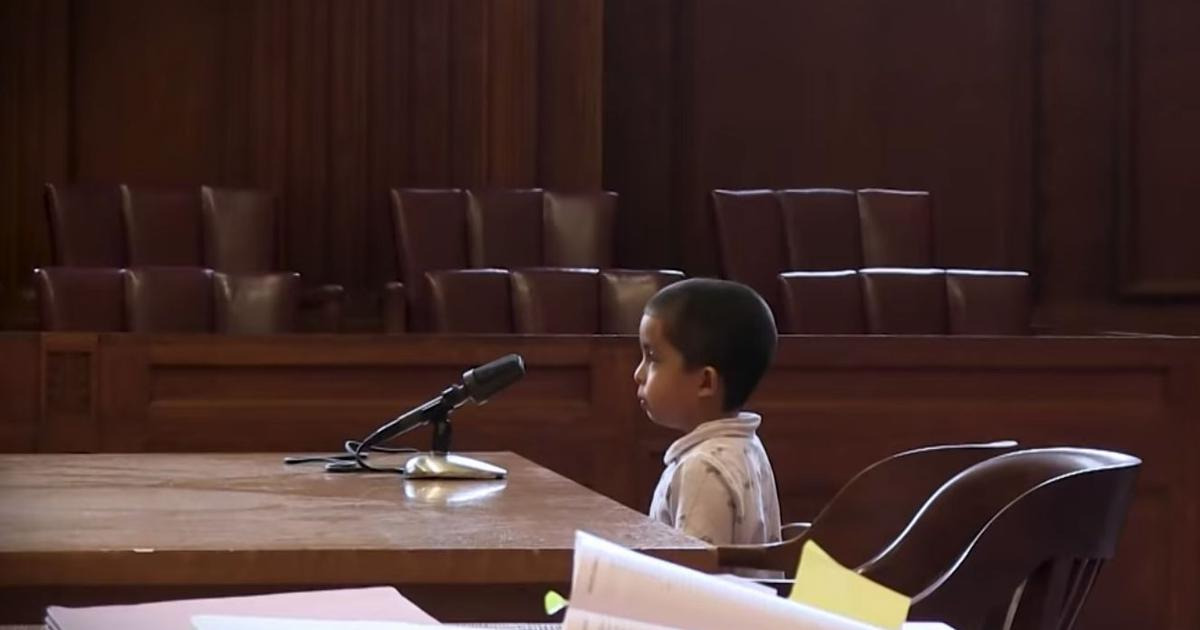What is a Review Hearing in Family Court?
A review hearing, also known as a status hearing, is a common proceeding that takes place in family court. The purpose of a review hearing is for the judge to review the status of a case and make any necessary rulings or changes to orders.
Review hearings are held at regular intervals, usually every 3-6 months, to provide ongoing oversight and monitor compliance with court orders. They offer an opportunity for the court to check in on the parties and assess their progress.
When Are Review Hearings Held?
Review hearings are typically scheduled automatically by the court. The first review hearing will usually be set for a few months after the initial hearing.
The court will then schedule subsequent review hearings to occur at regular intervals, such as every 90 days or twice a year. The frequency may depend on factors like:
- The complexity of the case
- Level of conflict between parties
- Volatility of circumstances
- Potential for change
Parties can also request interim review hearings as needed to address time-sensitive issues or disputes before the next scheduled review date.
What Happens at a Review Hearing?
During a review hearing, the judge will:
Check In on Case Progress
- Evaluate if court orders are being properly followed
- Assess cooperation between parties
- Review status reports submitted by parties
- Get input from lawyers, custody evaluators, or other relevant professionals
Address Areas of Dispute
- Hear arguments on outstanding disagreements or conflicts
- Consider requests for modifications or enforcement action
- Resolve temporary issues needing quick attention
Consider Changes to Existing Orders
- Review whether current custody, visitation, or support arrangements are working
- Entertain motions to modify existing orders as circumstances have changed
- Decide if amendments are needed to promote child’s best interests
Set Next Steps
- Schedule dates for upcoming hearings or court proceedings
- Order parties to take certain actions before next hearing
- Appoint experts like GALs or custody evaluators if needed
So review hearings let the court monitor ongoing compliance and adapt orders when required.
What Kinds of Issues May Be Addressed?
Review hearings cover all aspects of a family law case. Some common issues addressed include:
- Child Custody – Evaluating current custody/visitation schedule and arrangements. Ordering modifications if needed.
- Child Support – Reviewing financial information. Modifying support orders based on changes in income or expenses.
- Spousal Support – Assessing whether spousal support orders need adjusting.
- Property Division – Checking on asset distribution if pending. Enforcing compliance with property settlement.
- Parenting Plan Problems – Resolving disputes about implementing parenting plan terms.
- Missed Visits – Addressing denial of visitation rights. Ordering make-up visits.
- Non-Compliance – Determining if a party violated orders. Ordering enforcement actions.
- Temporary Changes – Considering short-term custody changes (e.g. upcoming vacation).
- Appointing Experts – Appointing mediators, GALs, or evaluators if needed.
So review hearings provide a flexible forum to stay on top of a wide range of case issues.
How Should I Prepare for a Review Hearing?
To prepare for a productive review hearing:
- Submit a Status Report – File a report summarizing your view of case progress. Identify areas of agreement or dispute. Make settlement suggestions if applicable.
- Update Financial Docs – Provide updated income information, bank statements, expense reports. Bring docs to support financial claims.
- Be Proactive – Don’t wait to raise issues. File motions ahead of time for modifications you will request.
- Make Child Arrangements – Don’t bring children unless ordered. Let them know about the hearing.
- Organize Documents – Create binders organizing relevant orders, reports, correspondence. Bring copies for the judge.
- List Desired Outcomes – Know exactly what you want from the hearing. Bring a list of orders to request the judge make.
- Practice Your Presentation – Rehearse what you will say concisely. Time your arguments to fit allotted windows.
- Consult Your Lawyer – Review hearing strategy with your lawyer. Prepare testimony together.
Being well-organized and prepared will help you make the most of the review hearing.
What Happens After the Review Hearing?
Following a review hearing, the court will issue a written order summarizing:
- Findings of fact
- Rulings decided during the hearing
- Modifications made to existing orders
- Additional actions parties must take
Court orders are binding so you must comply with directives in the order.
If the court makes significant changes, it may schedule a follow up review hearing fairly soon to check on the transition.
The court will also officially set the date for the next scheduled periodic review hearing.
Parties need to continue complying with all standing orders in the interim until the next hearing.
Be sure to obtain a copy of the order from your lawyer and review obligations the court has imposed.
Can a Review Hearing Order Be Appealed?
If you disagree with rulings issued in a review hearing order, you may be able to appeal, with some limitations.
- Check Appeal Deadlines – Appeals usually must be filed within 30 days of getting the order.
- Consult Your Lawyer – An attorney can advise if you have grounds for an appeal.
- Get Hearing Transcript – The transcript is needed for appeals. Order it right away.
- Consider Requests First – Ask the judge to reconsider decisions before launching an appeal.
- Weigh the Costs – Appeals can be expensive and slow. Think critically before pursing one.
- Look for Procedural Errors – The best appeal grounds are legal or procedural errors in proceedings.
- Focus Appeal on Specific Issues – Don’t just say you disagree. Target specific rulings made in error.
- Understand Long Odds – Relatively few family court orders are overturned on appeal.
Appealing can be complex so get legal guidance before deciding to go this route.
When Might a Review Hearing Not Occur as Scheduled?
There are some scenarios where a review hearing may not go forward on the date originally set:
- Continuance Granted – The court may grant a motion by either party to continue the hearing to a future date.
- Case Resolution Reached – If parties resolve all issues and settle the case, the review hearing gets cancelled.
- Conflict with Litigation Schedule – If other hearings or a trial is scheduled shortly after, the review may be pushed back.
- Judicial Reassignment – A new judge taking over the case may reschedule.
- ** COVID-19 Complications** – Pandemic protocols may force postponements or use of video conferencing.
- Lack of Timely Action – Failure to take steps like completing evaluations may delay the hearing.
- Missed Deadlines – Parties not filing status reports or documents on time may prolong the review.
- Scheduling Order Amended – The court may issue an order changing the hearing date.
While delays are frustrating, be prepared to be flexible if your review gets postponed.
Should I Have a Lawyer for My Review Hearing?
Having legal representation by an experienced family law attorney is highly recommended for review hearings. There are significant advantages to hiring a lawyer:
Better Understanding of Procedure
The rules governing review hearings can be complex. Lawyers regularly handle these proceedings and know how they operate. They can guide you through the process smoothly.
Assistance Preparing Documentation
There is often extensive paperwork involved, like financial disclosures and status reports. A lawyer will ensure you prepare and file complete, compliant documents.
Hearing Presentation Experience
Arguments must be made succinctly and persuasively before the judge. Lawyers are comfortable presenting cases effectively in court hearings.
Negotiation of Settlements
If agreements can be reached to resolve or narrow issues, lawyers can negotiate optimal settlements.
Expertise Interpreting Complex Issues
Lawyers understand the nuances around legal standards for custody, support modification, and property division.
Knowledge of Rules of Evidence
There are many evidentiary rules governing what can be raised and how. Lawyers ensure arguments stay within bounds.
Objectivity and Detachment
Emotions often run high. A lawyer provides a neutral perspective focusing on practical strategies.
While not strictly required, hiring an attorney to represent you in a review hearing can make the process much smoother and more successful.
What Happens If I Don’t Attend My Review Hearing?
It is always essential to personally attend your family court review hearings. Missing a review hearing can potentially have very damaging consequences.
Here is what may happen if you fail to appear:
Default Judgement Against You
The judge can enter a default judgement in favor of the other party, granting whatever orders or relief they requested. This immediately puts you at great disadvantage.
Facts Accepted as True
Any evidence or claims presented by the other side will be unchallenged and accepted as fact. Inaccuracies will go uncorrected.
Modifications to Your Detriment
Existing orders like custody or support arrangements can be changed to your disadvantage.
Missed Opportunity
You lose the chance to request desired modifications or raise important issues.
Future Arguments Waived
Issues that could have been addressed may be waived or precluded from being raised later.
Contempt Finding
If your absence violates a direct court order, you may be held in contempt, with additional penalties.
Statutory Penalties
Some states impose fines or other statutory penalties for missing hearings.
Attorney Fees Charged
You may be ordered to pay the other party’s attorneys fees incurred for the hearing.
Being absent essentially equates to forfeiting your rights, so make sure you move heaven and earth not to miss your review hearing date.
What If the Other Party Doesn’t Appear?
If the other party fails to appear at a review hearing, you are almost always in a more advantageous position. Here is what you may gain:
Default Judgement in Your Favor
The court may enter default orders granting whatever relief or outcomes you sought. The other party will be bound by these orders.
Unchallenged Presentation of Facts
Any facts, documentation, or testimony you submit will stand unopposed. The judge will likely accept your representations.
Favorable Modifications
You can request changes to custody, support, or other orders in your favor, which the court may grant.
Resolution of Disputes in Your Favor
Any areas of dispute will likely be decided to your benefit in the other party’s absence.
Unilateral Opportunity
You will have the judge’s ear to share your perspective, concerns, and requests without counter-arguments.
Stronger Future Position
Gaining favorable orders by default can bolster your strategic position regarding future issues.
Contempt Finding Likely
Judges frown upon skipped hearings. Contempt charges are likely against the absent party.
No-shows by the other party allow you to go on offense, so come armed with proposed orders for the court to implement in their absence.
Can a Review Hearing Order Be Modified Later On?
Review hearing orders are not always permanent and can be revisited under certain circumstances. Ways an order might be altered down the road include:
Succeeding Review Hearings
Judges expect circumstances to change. Orders can be modified at future review hearings.
Motions to Reconsider
Either party can file a motion asking the judge to reconsider and amend decisions made.
Appeals
Appellate courts can overturn orders and remand cases back to trial court for new orders.
Petitions to Modify Existing Orders
Parties can file petitions requesting modifications to custody, support, or other existing orders.
Motions for Temporary Orders
Temporary modifications can be made pending final decisions if urgent needs exist.
Compliance Enforcement Actions
If one party violates an order, sanctions or additional orders may be imposed.
Unanticipated Changes in Circumstances
Judges understand unpredictable events occur, necessitating amended orders.
Procedural Errors or New Evidence
Erroneous or incomplete info to the court can prompt corrected orders later.
Review orders should not be viewed as written in stone – courts recognize ongoing adaptability is essential in family law.
Could a Review Hearing Order Be Overturned on Appeal?
While family court orders have strong presumption of validity, review hearing orders can potentially be overturned on appeal in limited situations:
Lack of Personal Jurisdiction
If the lower court lacked jurisdiction over the parties, its orders may lack authority.
Procedural Irregularities
Major defects in notice, opportunity to be heard, or due process could invalidate the order.
Incorrect Legal Standards Applied
Applying the wrong test or criteria on pivotal issues may undermine orders.
Insufficient Factual Basis
Orders without adequate evidentiary foundation may fail on appeal.
Abuse of Discretion
Reviewing courts may find the original judge clearly abused their decision-making discretion.
Bias
Indications the judge acted on bias rather than neutral facts could lead to reversal.
Statutory Non-Compliance
Failure to adhere to family law statutes may undermine validity of orders.
Unenforceability
Impractical or unenforceable directives could be struck down or revised.
While appellate victories are uncommon, under limited scenarios, egregious errors in law or procedure can result in orders being overturned.
What Happens if the Status Quo Has Changed Substantially Since the Prior Hearing?
When circumstances have markedly changed, parties can raise the issue at the review hearing. Options include:
File Motions to Modify Existing Orders
Submit motions requesting amendments to custody, support, alimony, or other existing orders. Provide evidence on why they now unfairly prejudice you.
Petition for Temporary Emergency Orders
If urgent issues require immediate relief, petition the court for temporary emergency orders pending the review.
Submit Updated Financial Information
Supply documentation like tax returns, paystubs, and budgets proving significant changes in financial standing.
Request an Evidentiary Hearing
Ask the judge to schedule a special hearing to present witnesses and evidence establishing the magnitude of changes.
Get Evaluations to Assess New Circumstances
Request professional custody evaluations, home studies, or financial reviews to provide expert input on changes.
Highlight Changes in Written Submissions
Emphasize changes in status reports, pretrial briefs, and other written materials to the court.
Propose New Parenting Plan
Submit for court approval a new proposed parenting plan reflecting the new status quo.
Significantly changed circumstances may warrant amended orders, so document the changes and request relief accordingly.
What are Some Strategies to Have a Productive Review Hearing?
To maximize the effectiveness of your review hearing, consider these tips:
- Pick Your Battles – Focus on 1-2 priority issues rather than launching scattershot complaints.
- Offer Reasonable Compromises – Come prepared with fair proposed solutions instead of extreme demands.
- Remain Calm and Respectful – Avoid emotional outbursts or arguments. Take the high road.
- Highlight Common Interests – Note areas where you agree with the other party and can work cooperatively.
- Provide Documentation – Supply evidence like financial records, emails, parenting journals to support your claims.
- Follow Court Protocols – Dress, act, and speak appropriately. Observe courtroom decorum.
- Be Concise – Judges have packed schedules. Boil down arguments to key salient points.
- Listen Attentively – Pay attention to arguments by the other party and insights offered by the judge.
- Take Notes – Document orders, deadlines, and other directives so you remember details.
Thorough preparation and thoughtful presentation will help you achieve the best outcome from your hearing.
Conclusion
Review hearings play a critical role in family court cases by providing ongoing oversight of court orders, evaluating changing conditions, resolving conflicts, and adapting prior rulings when appropriate. They offer a chance for your voice to be heard on unresolved issues and concerns. Attending fully prepared with reasonable proposals can help ensure your interests are protected and promoted. Working cooperatively within the process will lead to the most constructive outcomes. The system aims to be fair so have faith it will respond to well-presented and well-supported requests. With patience and perseverance, productive review hearings can help put your family on the path to long-term stability, harmony, and success.
Here are 5 unique frequently asked questions about review hearings in family court:
How often will review hearings be scheduled in my case?
The frequency of review hearings varies case by case, but often they are set for every 90 days or twice per year initially. The court will assess how often oversight is needed based on level of conflict, volatility of circumstances, and potential for changes. More conflict generally means more frequent review.
What happens if I am out of town or have an emergency on the date of my scheduled review hearing?
You should notify the court and other party as soon as possible if you have an unavoidable conflict on the date of your review hearing. You can file a motion to continue the hearing to request that it be rescheduled due to your unavailability. Provide documentation supporting the emergency if possible. If you foresee a scheduling conflict, request a continuance well in advance, rather than waiting until the last minute. The judge has discretion whether to grant a continuance, so legitimate emergencies usually must exist. Don’t assume a continuance will be approved without evidence of extraordinary circumstances.
Can I bring my children to the review hearing?
It is usually not advisable to bring minor children to a review hearing without a court order. These hearings can often involve conflict and emotionally charged issues that may be distressing or confusing for children. Speak with your lawyer about options like having a parenting coordinator interview your kids separately or requesting the judge to interview them in chambers in a more child-friendly setting. Don’t bring children to try to sway the judge, as this usually backfires. Focus on maturely presenting facts to support their best interests yourself.
What happens if new issues or disputes arise shortly before a scheduled review hearing?
If new significant issues arise soon before a review hearing is set to occur, you have a few options:
- File a motion to continue the hearing to give you time to fully research and prepare arguments on the new issue.
- Petition the court for an emergency hearing to address the urgent new disputes prior to the review.
- Attend the review as planned, but request the judge schedule an additional interim hearing focused on the emerging issues.
- Ask the judge for permission to submit supplemental status reports addressing the late arising issues.
While not ideal, the court understands new disputes can crop up and will try to accommodate efforts to properly address them.
Can I speak directly to the judge in court during my review hearing?
You generally must speak through your attorney during a review hearing, with exceptions for making unrepresented statements to the judge or being questioned on the witness stand after being sworn in. Casual direct conversations are not appropriate during live court proceedings. Even representing yourself, follow proper protocols of the court. Judges want to hear succinct evidence and arguments, not off-the-cuff remarks. Any questions or statements you have should be written out ahead of time or shared privately with your lawyer during the hearing.







